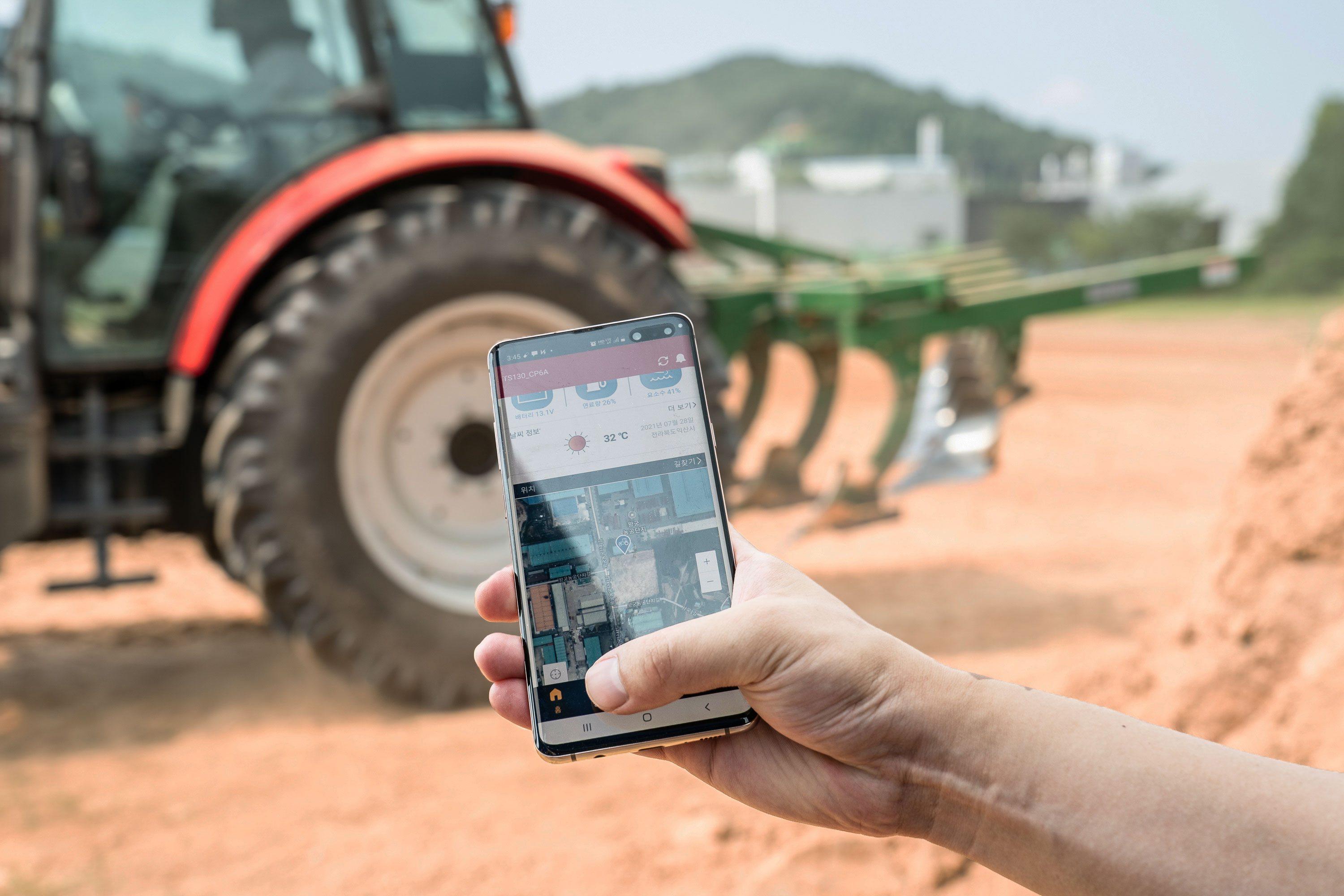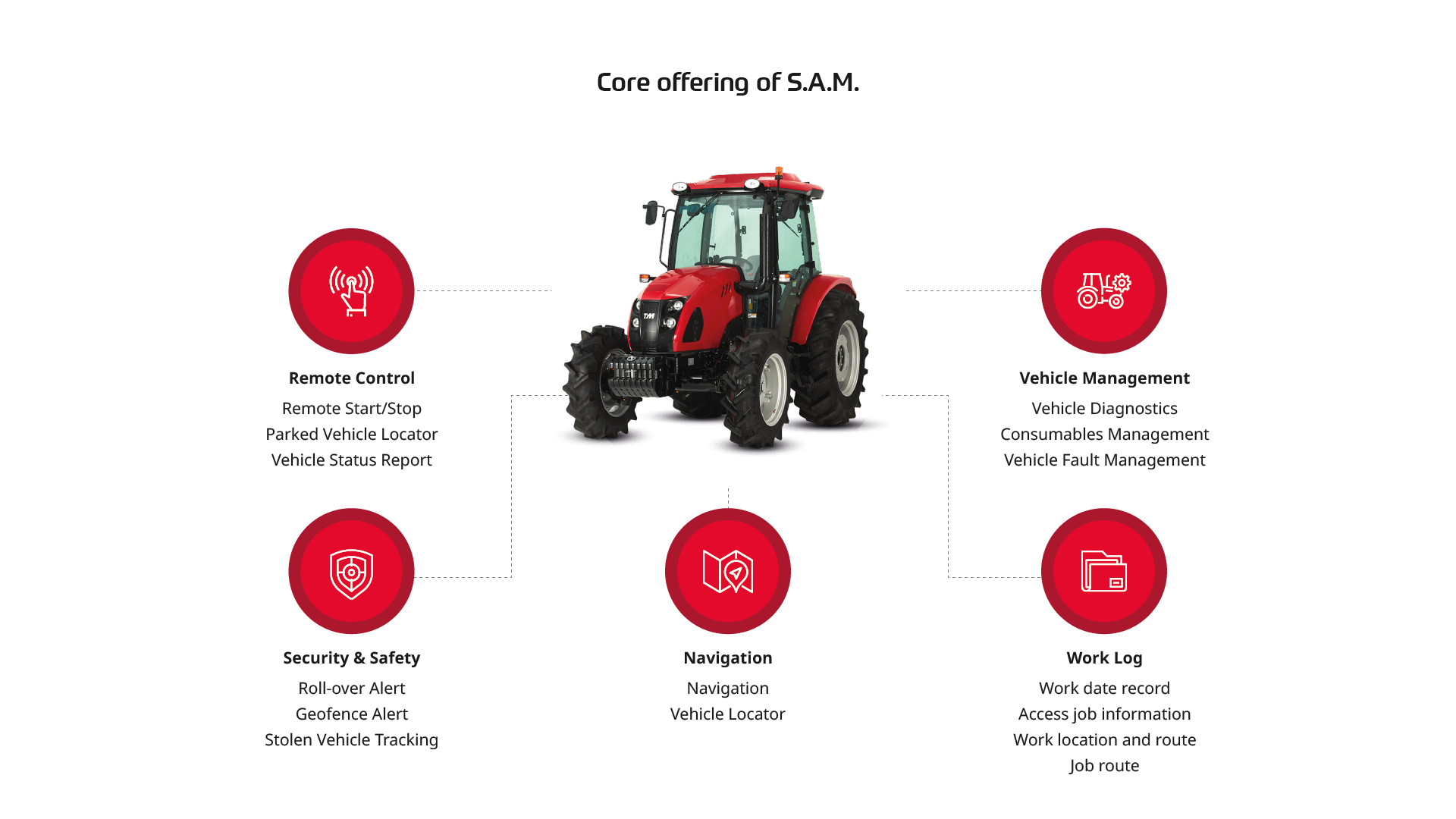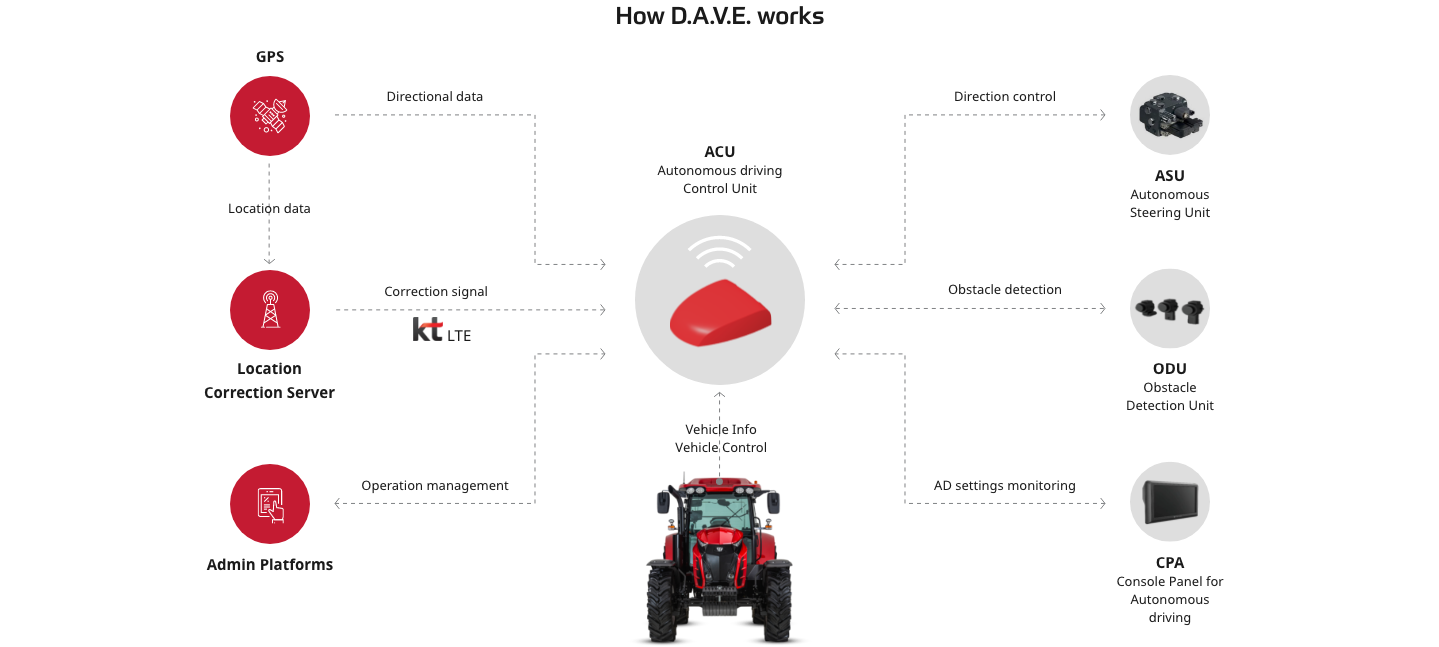
What is precision agriculture, and why does it matter?
The scenario above is precision agriculture at its core. Precision agriculture is a farm management approach that uses data and technology to make farming more efficient and more productive. Precision agriculture reduces the need for agricultural inputs like water, fertilizers, and pesticides, which in turn reduces costs and farming’s environmental footprint. The use of technology also cuts down on physical labor needs and improves overall productivity, improving the profitability of farming as a source of livelihood.
Optimization plays a large role in all modern agricultural processes, but that does not mean that it is always widely adopted and practiced on farms. Precision agriculture is still in its infant stages in Korea. According to a 2016 research by the Korea Rural Economic Research Institute, the amount of pesticides used per hectare in Korea was almost 10 times higher than in Canada, and fertilizer usage was more than three times as high.
While precision agriculture may sound complicated and costly, it does not mean that it is reserved only for conglomerates and industrial farms. Leveraging advanced digital tools, big data, and AI to save on input costs is also a viable and attractive option for small-scale farmers who may struggle with limited resources and productivity.

Precision agriculture with TYM tractors
The latest fleet of TYM tractors like the T76 and T130 have been developed with telematics to optimize operations. TYM's patented Digital Automated Vehicular Experience (D.A.V.E.) technology powers these tractors so that you can enjoy increased efficiency, higher yields, and more time to tend to other important matters. Using telematics that allow your machines to share data, along with our Smart Agricultural Management app gives you complete management of your farm.
A three-app suite comprises TYM’s Smart Agricultural Management (S.A.M.) system. This includes the comprehensive operator app for detailed information about your vehicle, the in-browser admin service for easy access to operation statistics, and the admin app for monitoring on-site diagnosis and maintenance. With the operator app installed on your smartphone, you can start and stop the machine remotely while accessing live location information and status reports. When you’re not the one at the wheel, use the admin app to check your vehicle’s navigation or create a geofencing zone.

The benefits of precision agriculture for farmers
Efficiency and productivity are the driving forces behind TYM’s technology. Studies show that sowing with a D.A.V.E.-enabled tractor, which is equipped with one of the most accurate Autonomous Driving systems in the industry, reduces overall working time compared to manual sowing. This technology also reduces operator fatigue by allowing the tractor to do the work so that you can turn your focus from driving to managing operations. Planting with a D.A.V.E.-enabled tractor also ensures precise and tighter spacing when planting crops, allowing up to four more rows per acre than a manually-driven vehicle. Through these case studies, it is clear that advanced technology in advanced machines results in higher yields and profits for farmers.
This level of advanced machinery, used in tandem with different sensors that collect and analyze information about the environment, can be a powerful tool for farmers. Is the soil too dry? Is nitrogen-related stress causing leaf discoloration? Are moisture levels consistent across the field? Today's precision farming tools can quickly and accurately answer questions that previously relied on extensive research or personal instincts. With precision farming, farmers can spot disparities in sun exposure and moisture levels. Sensors can now detect if the soil is dry or if plants lack nitrogen, while drones and cameras can identify insect or disease outbreaks from a distance. As more information and data become widely available, each farmer can play a role in our collective future by optimizing their operations and using smaller amounts of chemical fertilizer and pesticide. Empowering farmers to save operational costs while protecting the environment from further pollution aligns with TYM’s vision for sustainability.
Precision agriculture starts with accessibility and support
While advanced autonomous tractors and other state-of-the-art equipment may not be within reach for all small-scale farmers, the core principles of precision farming remain relevant and applicable to farms of all sizes. Accessible tools for precision farming include mobile phones, remote sensing drones, and the Internet of things (IoT).
Small-scale farmers in Korea can be a major part of the global food security equation. However, widespread adoption of precision agriculture will not happen overnight. Small farms are vulnerable to unpredictable climate and extreme weather, and in turn, may suffer from losses and low productivity. The lack of digital literacy among small-scale farmers remains a barrier in leveraging new technologies. Overcoming these challenges requires cooperation from both the public and private sectors to deliver financial incentives, hands-on training, and more support to help build digital capacities among an older generation of farmers. And for precision agriculture practices to be widely implemented, these principles and technologies need to be customized and contextualized to local and personal circumstances.
With the help of advanced tractors like the Series 6 T130 Utility Tractor, farmers of all kinds and farms of all sizes can start optimizing their operations while reducing their environmental impact. To read more about TYM’s commitment to sustainability, visit our website or read the latest ESG report with detailed plans for sustainable growth.